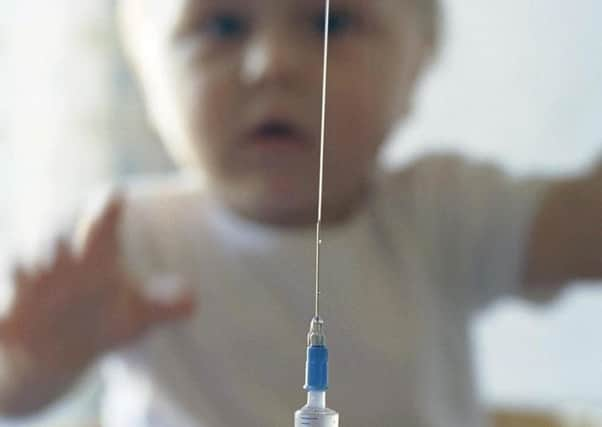YP Letters: Vaccination success story needs our ongoing support


THE Yorkshire Post reported recently that Public Health England is urging people to ensure they and their children are vaccinated against measles, as there has been an increase in cases in 2017/18.
However, few readers may be aware that this is World Immunisation Week. It is an opportunity to reflect upon the tremendous benefits that effective vaccination programmes can bring.
Advertisement
Hide AdAdvertisement
Hide AdWith successful vaccination programmes around the world, we are closer than ever to ensuring that everyone is protected from vaccine-treatable diseases such as diphtheria, measles and polio. Polio could be completely eradicated in the not-too-distant future.
It was wiped out in the UK in the mid-1960s, after a mass vaccination programme, although there are still around 120,000 survivors of polio living in the UK. Polio cases globally have also decreased by 99.9 per cent since the 1980s and it now remains in only three countries – Afghanistan, Pakistan and Nigeria.
The success of polio eradication efforts is testament to the power of immunisation. Immunisation rates are at their highest ever, with global coverage rates of 86 per cent in 2016, up from 72 per cent in 2000. Progress is therefore being made in the right direction.
However, such progress only possible with the support of donors to global health programmes such as GAVI, The Vaccine Alliance and the Global Polio Eradication Initiative (GPEI). The UK is a leader in global health, and UK aid has helped immunise 67.1 million children against preventable diseases. That’s almost equivalent to the entire population of Britain! Continued support from the UK is vital if we are to ensure that all children have access to the vaccines they need.
Advertisement
Hide AdAdvertisement
Hide AdVaccination isn’t an issue that affects people ‘over there’; routine vaccination protects children in the UK and around the globe. Diseases don’t respect borders and a strong routine immunisation and health system can ensure a fast response and make the difference between a global epidemic and concentrated cases in one area.
That’s why effective vaccination programmes, supported by the UK and other governments, must receive continued support. It is also why we in Yorkshire should continue to show public support for such programmes and not only ensure that our children are vaccinated here, but also that children around the world are vaccinated with the UK’s support.